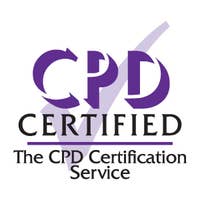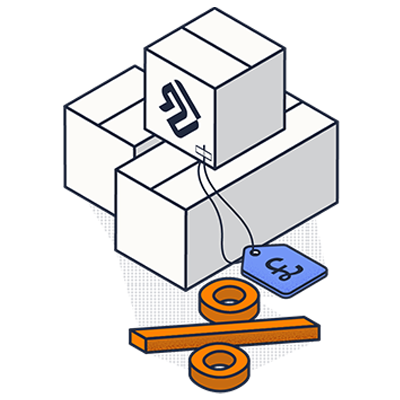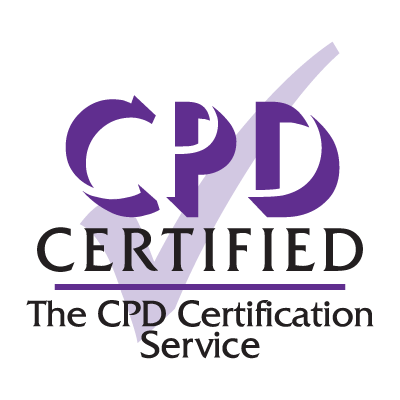Designated Safeguarding Lead Training
Quantity: 1

Duration 3 hours
Last audited 3rd July 2024


100% online training
Start when you like
Learn on any device (desktop, mobile or tablet)
Instant assessment and result
1 learner per course
Train teams of all sizes
Bulk discounts starting at 10% off 10 courses
Pay by invoice with 30 day payment terms available (5+ courses)
Includes a 10% discount for 10+ courses
As Designated Safeguarding Lead (DSL) or Deputy DSL, you will be the first point of contact for safeguarding and child protection enquiries within your setting. You also have a responsibility to ensure that everyone in your organisation is following best safeguarding and child protection practices, so it’s essential that your knowledge is in-depth and up-to-date.
This online Designated Safeguarding Lead course will help you to understand the safeguarding and child protection process in more detail and teach you more about what the role involves. It explores how to effectively create a culture of safeguarding, raise awareness of safeguarding and child protection issues in your organisation and respond to concerns and make referrals. The course contains a variety of scenarios, reflections and exercises to enable you to apply your learning, and throughout the course, you will find a range of downloadable resources to help you review and develop the safeguarding and child protection procedures within your organisation.
100% online training
Access anywhere
Same day digital certificate
Printed certificate posted next working day
Full audio voiceover
Assessment retakes at no extra cost
Developed by a qualified safeguarding and child protection consultant and trainer
Written in line with Department for Education (DfE) statutory guidance Working Together to Safeguard Children and Keeping Children Safe in Education (KCSIE) statutory guidance
Downloadable module summaries of key learning points
Accredited by CPD
Earn 3 CPD points on completion
Bulk discount for orders of 10+ courses

Save on our courses when you buy more training upfront. Lock in a better price now and access the training whenever you need to. You can mix and match any of our courses too and get the discount off your whole order.
10+ courses = 10% off
50+ courses = 20% off
100+ courses = 30% off
500+ courses = 40% off
At the end of this DSL training course, learners will be able to:

Accredited by CPD
All of our courses are accredited by the CPD Certification Service as conforming to universally accepted Continuing Professional Development (CPD) guidelines.
Recommended renewal:
2 years
What does this mean? This certificate does not have an expiry date, however, based on industry best practice guidelines there is a recommended renewal period.
Our in-house Learning Designers develop all of our courses to give you and your learners the most engaging training possible.








It is impossible to put an exact figure on how many children in the UK are suffering maltreatment at any one time, as it comes in many forms and many cases of child maltreatment go undetected and unreported. Child safeguarding practice reviews often highlight the many missed opportunities to address safeguarding and child protection risks.
Employers have a legal responsibility to ensure the health and safety of the children under their care and every organisation working with children should have an appointed Designated Safeguarding Lead (DSL). It's essential that those with safeguarding responsibilities are suitably trained so they can effectively carry out their duties.
Designated Safeguarding Leads are responsible for developing and maintaining safeguarding standards and responding to concerns within their setting. This course will help a DSL to understand their role and how to establish a culture that enables everyone to fulfil their statutory safeguarding responsibilities.
Defining child protection and safeguarding, the importance of safeguarding training, child safeguarding practice reviews, key child protection and safeguarding legislation, Working Together to Safeguard Children, responsibilities and your responsibilities.
What is a culture of safeguarding?, vigilance, a safe environment, effective relationships, policies and procedures, safer recruitment processes and case study - William Vahey.
Raising awareness, types of maltreatment, other safeguarding issues, potential indicators of maltreatment, why children don’t disclose information, children with additional vulnerabilities, children’s responses to maltreatment, why adults don’t take action, training and further awareness raising.
Responding to concerns, how concerns might be raised, responding to a disclosure, responding to concerns raised, levels of need, no additional needs, early help, child in need, child protection and what response is needed?
Making and managing referrals, accessing further guidance and advice, making a Prevent referral, making a DBS referral, making a referral to the LADO, referrals to Children’s Social Care, what should you include in a referral?, responses from Children’s Social Care, the assessment process, Early Help Assessments, child in need assessments, child protection and what response is needed?
The key principles of multi-agency working, multi-agency working, resolving disagreements, the escalation process, case study - Telford, your continued involvement and support for staff.
Recording information, what to record, why professionals don’t share information, sharing information, information sharing - best practice and record keeping.
Optional Education Specific Choose Your Path Content (further sector-specific guidance, the DSL in education, policies and procedures, child on child sexual violence and harassment, safeguarding and the curriculum, the Prevent Duty and promoting British values, raising awareness, children with additional vulnerabilities, working with others and sharing, recording and holding information), your continued development and assessment.
The online assessment is taken on completion of the training material.
You will be asked 25 multiple choice questions with a pass mark of 80%.
The answers are marked automatically so you will instantly know whether you have passed. If you don't pass don't worry! You can take the test as many times as you need with no extra charge.
This course is written at an advanced level and it is recommended you have some knowledge of safeguarding procedures before beginning the training.
It is suitable for anyone who works frequently with children and who holds a management, supervisory or designated child protection role in settings such as schools, universities, charities, places of worship, sports clubs, leisure centres and GP and healthcare practices.

In partnership with
Joanna Nicolas
Safeguarding and Child Protection Consultant
Joanna Nicolas is a highly regarded safeguarding consultant, trainer and social worker with 30 years of experience in the sector.
Joanna is a co-opted Board member of Cafcass and a member of the Prince’s Trust Safeguarding Advisory Panel. She is also a court-appointed expert witness in child protection cases.
She was a core trainer for her Local Safeguarding Children Partnership for 15 years and works with various Local Authorities and other organisations specialising in the most complex child abuse cases.
In recent years Joanna has worked with a range of UK organisations including the Department for Education, Ofsted and Local Safeguarding Children Partnerships.
Yes. This online DSL course is suitable for Designated Safeguarding Leads and Deputy Designated Safeguarding Leads. As stated within Keeping Children Safe in Education (KCSIE) statutory guidance, any deputies should be trained to the same standard as the Designated Safeguarding Lead.
Designated Safeguarding Lead Training is recommended for anyone wishing to understand the responsibilities of the Designated Safeguarding Lead, including those already in this position seeking further training and support, deputies and those assisting whoever holds the position, as well as those taking on a safeguarding lead for their organisation.
Level 3 Safeguarding Adults Training is recommended if you are looking to become a Designated Safeguarding Lead but you look after vulnerable adults in your care setting.
Advanced Safeguarding Children (Level 2 Safeguarding) Training is recommended if you require an advanced level of safeguarding knowledge but you are not a Designated Safeguarding Lead/Officer or Deputy Designated Safeguarding Lead.
Introduction to Safeguarding Children (Level 1 Safeguarding) Training is recommended if you have no prior safeguarding knowledge or do not require an advanced course. It is suitable for workers of all levels, including managers, supervisors, full-time staff, part-time staff and volunteers.